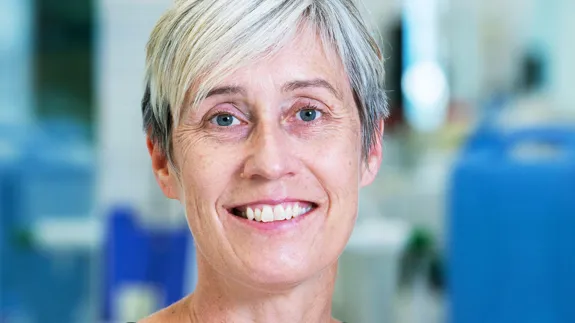2024 New Treatment Grant - Prof. Claudine Bonder
Treating patients with pancreatic ductal adenocarcinoma (PDAC) remains one of the biggest challenges, largely because the body’s cancer killing cells and anti-cancer drugs are unable to penetrate through the dense tumour microenvironment in the pancreas. An Australian based research team, led by Claudine Bonder at the Centre for Cancer Biology, recently discovered a single protein (desmoglein-2 (DSG2)) to be highly expressed on the surface of pancreatic cancer cells. More specifically, they determined that this single protein drives the progression of PDAC and that it can be blocked to significantly inhibit tumour growth and cancer cell spread. Using a novel tool that blocks DSG2 function only on cancer cells (an anti-DSG2 monoclonal antibody (mAb)), they demonstrated a significant reduction in PDAC progression in mice. This current project brings together a team of scientists, clinicians and people with lived experience of PDAC to directly compare the anti-DSG2 mAb as a monotherapy against the highly toxic standard-of-care chemotherapy and investigates it’s potential as a theranostic with radiopharmaceuticals to first detect and then treat PDAC with cutting-edge precision.
Proudly supported in part by Country Women's Association of NSW

